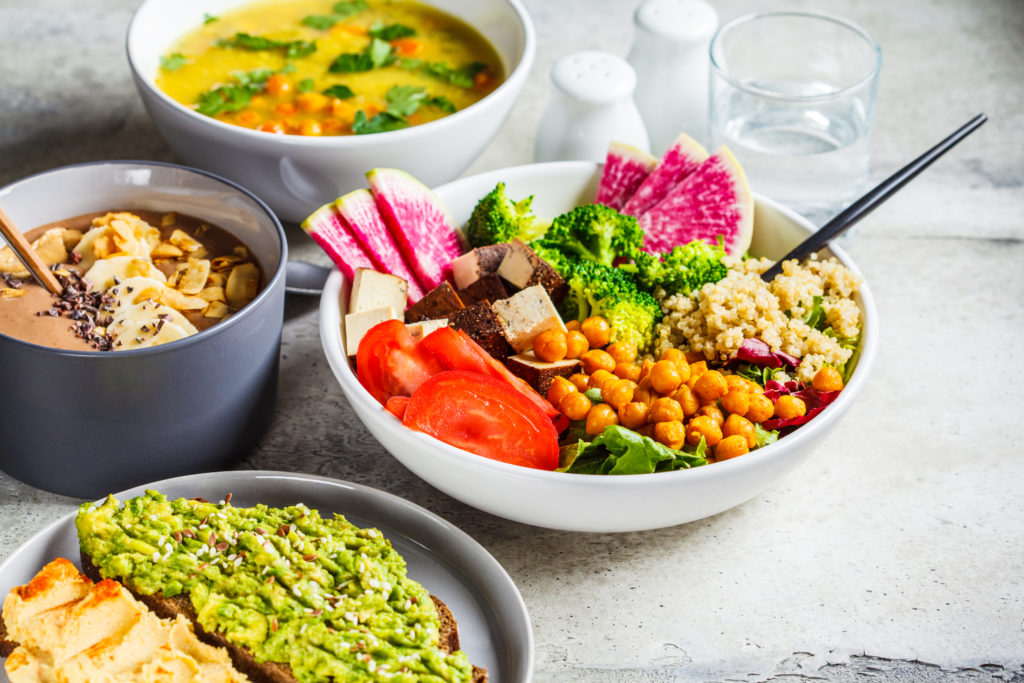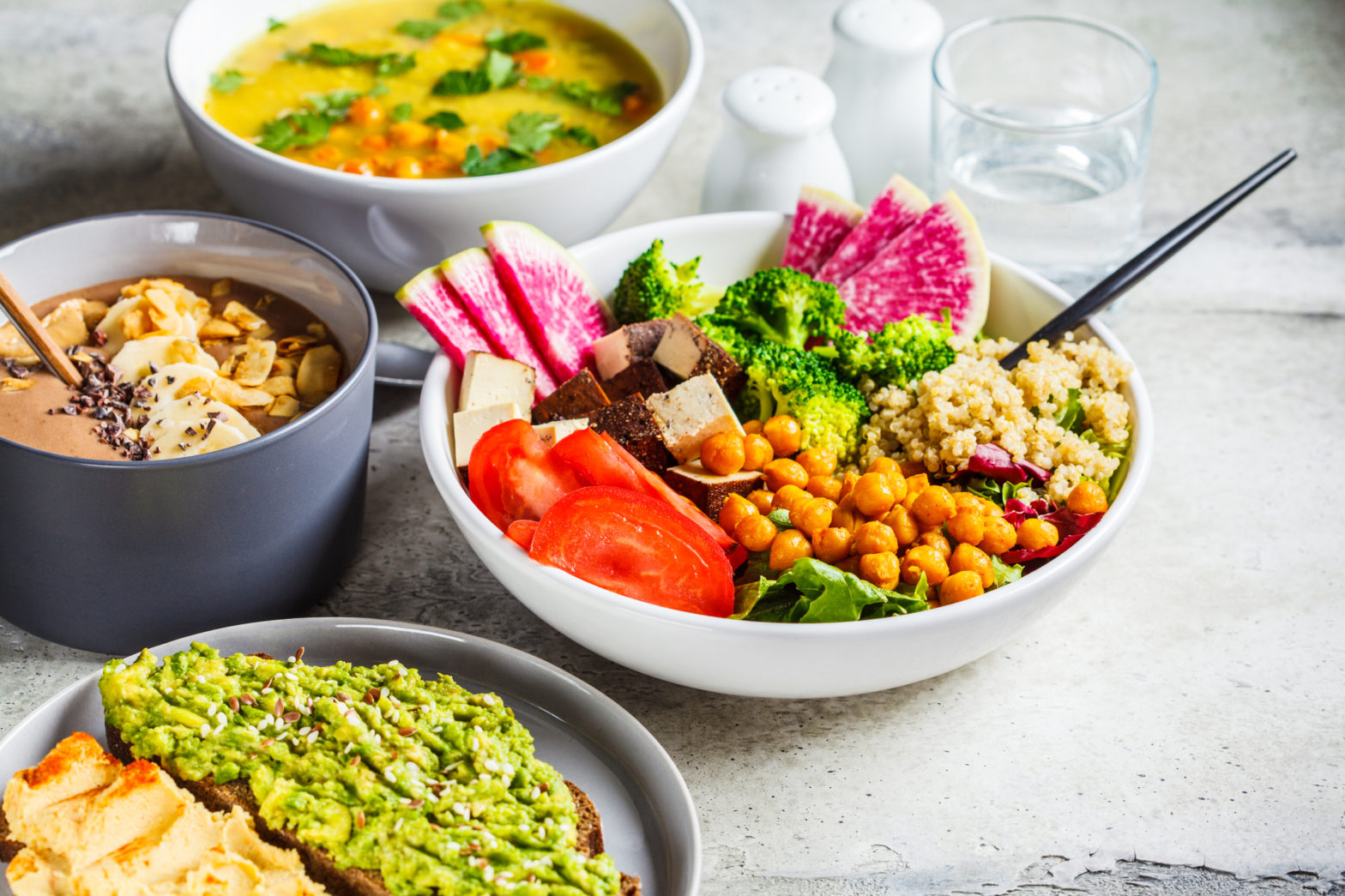
From desiring to be healthier, to supporting animal rights, to wanting to be gentler on the planet, there are many reasons people become curious about adopting a plant-based diet. And with vegetarianism and veganism on the rise, it’s becoming increasingly easier to get educated about — and embody — a plant-based lifestyle.
So how do you know if going plant-based is for you? Let’s dive in.
What Is a Plant-Based Diet?
A plant-based diet focuses on eating mostly plants such as:
- Fruits
- Vegetables
- Tubers
- Seeds
- Legumes
- Nuts
- Grains
In many cases, people following a plant-based diet avoid all animal products, such as meat, fish, eggs, and dairy. However, some people interpret “plant-based” as eating mostly plant foods, so, on occasion, they may consume meat, fish, or dairy.
Are Plant-Based Diets Healthy?
As with all “diets,” just because they include the word “diet” doesn’t mean they’re healthy. (Cabbage Soup Diet, we see you.)
However, a plant-based diet can be very healthy if done correctly.
Research shows that balanced diets high in fruits, veggies, and whole grains can improve heart health and reduce the risk of diabetes and obesity. Plant-based diets can also help you lose weight.
All of this sounds great and like plant-based diets are a slam dunk, right?
Maybe. But maybe not.
What To Avoid In a Plant-Based Diet
As with all healthy eating plans, the key is to stay away from processed foods, refined grains, added sugars, and foods with unhealthy additives and preservatives. Those things simply do not benefit anyone trying to improve their health.
And while it may be tempting to grab a vegan meal replacement bar or shake, a quick check of the ingredients may turn up a good number of the “stay away from” ingredients we just listed above. Instead, look for clean plant-based protein sources.
How to Do a Plant-Based Diet “Right”
Now that you know what you’ll need to avoid as you consider going plant-based, let’s look at what you’ll want to eat in order to get the benefits you’re looking for — and the nutrients your body needs.
Eat lots of:
- Vitamin- and mineral-rich fruits, like berries, citrus, stone fruits, pineapple, bananas, and apples
- Iron- and calcium-rich vegetables, like leafy greens (spinach, kale, watercress, bok choy, mustard greens), broccoli, beet greens, turnip greens, and artichokes
- Sprouted and fermented probiotic-rich foods, like sauerkraut, pickles, kimchi, kombucha, miso, tempeh, and Ezekiel bread
- Nuts (unroasted), nut butters (natural, not highly processed), and seeds, which are great sources of fiber, magnesium, zinc, selenium, vitamin E, and antioxidants; note that hemp, chia, and flax seeds are also high in protein
- Fiber-, protein-, and vitamin- and mineral-rich legumes, like peas, lentils, and beans
- Calcium-, vitamin B12-, and vitamin D-fortified plant milks and yogurts, like soy, hemp, coconut, almond, rice, and oat (be sure to choose unsweetened varieties)
Tip: It’s important to eat whole or very minimally processed foods in order to get the most nutrients in each serving.
RELATED: The 5 Biggest Benefits of Plant-Based Protein Powder
So… Is a Plant-Based Diet For You?
Whatever your reasons for considering a plant-based diet, our last recommendation would be to swap out the word “diet” for “lifestyle.” Because when you go plant-based, it becomes a lifestyle, and you’ll need to commit to a lifestyle change in order for your new plant-based life to be successful and sustainable.
Some things to consider:
- You may be tempted by foods that are not in support of your new lifestyle — will you be able to say no to those foods?
- You will have people in your life who don’t understand what you’re doing or your reasons for doing it — will you be able to stand strong in your new lifestyle, whether you’re supported or not?
- You’ll have to make conscious decisions when you’re at a restaurant — are you willing to preplan what you’ll order while you’re out, or suggest a different restaurant to your meal-mates if the place they chose has no plant-based options?
- You may even need to bring your own food to some social occasions like cookouts and holiday gatherings — are you willing to overlook the narrowed eyes you might get from those who think you’re being extreme or even (gasp!) offensive to the host or hostess of the event?
If you can say YES to all of these and you’re ready to dive into the list of YES foods above, a plant-based lifestyle might be perfect for you!
Even if you can’t say yes to each of these lifestyle changes immediately, you can begin integrating more plant foods into your diet and seeing where it takes you. You could love it so much that a full change is inevitable. Or, you can become mostly plant-based with some flexibility to add in animal products on occasion.
The key to success is to do what’s best for you, and to listen to your body the whole way. It will guide you the whole way. That’s what it’s designed to do.
To your health and happiness…
Your NatureM.D. Wellness Team


